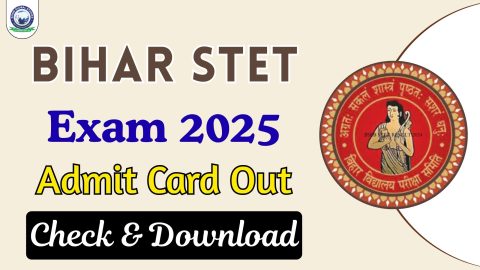IB ACIO Mock Tests: Your Gateway to Intelligence Bureau Success – Preparing for the Intelligence Bureau Assistant Central Intelligence Officer (IB ACIO) exam can feel overwhelming. With thousands of aspirants competing for limited positions, standing out requires strategic preparation and regular assessment. Mock tests have emerged as the most effective tool for gauging your readiness and identifying areas that need improvement.
The IB ACIO exam demands comprehensive knowledge across multiple subjects, from quantitative aptitude to current affairs. Success depends not just on what you know, but how well you can apply that knowledge under time pressure. This is where quality mock tests become invaluable—they simulate the real exam environment whilst helping you build confidence and refine your test-taking strategy.
Understanding the exam pattern, practicing with authentic questions, and receiving detailed performance analysis can make the difference between success and disappointment. With the right preparation approach, you can transform your weaknesses into strengths and approach the actual exam with confidence.
Understanding the IB ACIO Exam Structure
The Intelligence Bureau conducts recruitment for various positions, including ACIO and Security Assistant/Executive roles. These exams follow a structured format designed to assess candidates’ analytical abilities, general knowledge, and problem-solving skills.
Key Exam Components
Quantitative Aptitude forms a significant portion of the paper, testing mathematical reasoning and numerical ability. Questions typically cover arithmetic, algebra, geometry, and data interpretation. Candidates must demonstrate speed and accuracy in calculations whilst managing time effectively.
Current Affairs questions assess awareness of national and international events, government policies, and recent developments. This section requires consistent reading of newspapers, magazines, and reliable online sources. Regular updates on political, economic, and social issues are essential.
General Studies encompasses history, geography, polity, economics, and science. The breadth of this section makes it challenging, as candidates must maintain knowledge across diverse topics. Focus areas include the Indian constitution, freedom movement, economic policies, and scientific developments.
Reasoning and Logical Aptitude evaluate analytical thinking through puzzles, sequences, analogies, and logical deductions. These questions test mental agility and the ability to identify patterns quickly.
English Language sections examine grammar, vocabulary, comprehension, and communication skills. Proficiency in English is crucial for intelligence roles, making this component particularly important.
Exam Format and Timing
The IB ACIO exam typically consists of 100 questions to be completed in 60 minutes. This tight timeframe means candidates have approximately 36 seconds per question, emphasising the need for quick decision-making and efficient time management.
Negative marking of 0.25 marks per incorrect answer adds another layer of complexity. This penalty system rewards accuracy over guesswork, making strategic question selection crucial for optimal scores.
Benefits of Taking IB ACIO Mock Tests
Mock tests offer numerous advantages that traditional study methods cannot provide. They create an authentic exam experience whilst delivering insights that guide your preparation strategy.
Real Exam Simulation
Quality mock tests replicate the actual exam environment, including question difficulty, time constraints, and interface design. This familiarity reduces exam day anxiety and helps you perform at your best when it matters most.
The pressure of timed conditions during mock tests trains your mind to think quickly and efficiently. Regular exposure to this environment builds mental stamina and improves your ability to maintain focus throughout the entire exam duration.
Comprehensive Performance Analysis
Detailed analytics reveal patterns in your performance that might not be apparent during regular study sessions. You can identify subjects where you excel and topics that require additional attention.
Performance tracking across multiple attempts shows your improvement trajectory. This data helps you adjust study plans and allocate time more effectively to areas needing development.
Strategic Question Selection
Mock tests teach you which questions to attempt first and which to skip. This strategic approach maximises your score potential by ensuring you complete questions within your expertise before tackling challenging ones.
Understanding your accuracy rates in different subjects helps develop a personalized exam strategy. Some candidates perform better starting with easier sections to build confidence, whilst others prefer tackling difficult questions when their mental energy is highest.
Time Management Skills
Regular mock test practice develops an internal clock that helps pace your progress during the actual exam. You learn to recognise when you’re spending too much time on a question and need to move forward.
Effective time allocation across different sections becomes second nature through repeated practice. This skill often determines the difference between completing the paper and leaving questions unanswered.
How to Maximise Mock Test Benefits
Simply taking mock tests isn’t enough—you must approach them strategically to extract maximum value from each attempt.
Create Exam-Like Conditions
Take mock tests in a quiet environment free from distractions. Use the same timing constraints as the actual exam and avoid any reference materials during the test.
Maintain consistent timing for your practice sessions. If your exam is scheduled for morning hours, take mock tests during similar times to align your peak performance with exam requirements.
Thorough Result Analysis
Spend adequate time reviewing your performance after each mock test. Identify not just incorrect answers, but also questions where you guessed correctly—these represent knowledge gaps that need addressing.
Track your progress across multiple attempts using a simple spreadsheet or notebook. Record scores by subject area, timing for different sections, and notes about challenging question types.
Focus on Weak Areas
Use mock test results to guide your study priorities. If quantitative aptitude consistently shows lower scores, allocate additional study time to mathematical concepts and practice problems.
Don’t ignore strong areas entirely, but ensure weak subjects receive proportionally more attention. The goal is achieving a balanced performance across all exam components.
Learn from Mistakes
Maintain an error log documenting questions you answered incorrectly. Review these periodically to ensure you don’t repeat similar mistakes in future tests.
Understanding why you chose incorrect answers provides insights into thinking patterns that need adjustment. Sometimes the issue isn’t lack of knowledge but misreading questions or making calculation errors.
Choosing Quality Mock Tests
Not all mock tests provide equal value. Selecting high-quality practice materials significantly impacts your preparation effectiveness.
Authentic Question Patterns
Look for mock tests that mirror the actual exam’s question difficulty and style. Questions should reflect current exam trends rather than outdated patterns from previous years.
Reliable test providers regularly update their question banks to maintain relevance with evolving exam patterns. This ensures your practice remains aligned with current requirements.
Comprehensive Coverage
Quality mock tests cover the complete syllabus rather than focusing on select topics. Each subject area should receive appropriate weightage matching the actual exam distribution.
Variety in question types within each subject prevents you from becoming overly comfortable with specific formats. The actual exam may present familiar topics in unexpected ways.
Detailed Explanations
Comprehensive solutions explaining both correct and incorrect options enhance learning value. These explanations should clarify concepts rather than simply providing answers.
Good explanations help you understand the logic behind correct answers and identify why other options are incorrect. This deeper understanding improves future performance on similar questions.
Performance Analytics
Advanced mock test platforms provide detailed analytics including time spent per question, accuracy rates by subject, and comparison with other test-takers.
These insights help identify specific areas for improvement and track progress over time. Some platforms offer personalized recommendations based on your performance patterns.
Common Mock Test Mistakes to Avoid
Many candidates make preventable errors that limit the effectiveness of their mock test practice.
Focusing Only on Scores
Whilst scores provide useful feedback, obsessing over them without analysing underlying performance patterns limits improvement potential. A lower score with better time management might indicate progress despite the disappointing number.
Focus on developing consistent performance across all subjects rather than achieving one exceptional score followed by several poor attempts.
Inadequate Review Time
Rushing through result analysis to take another mock test wastes valuable learning opportunities. Spend at least as much time reviewing results as taking the actual test.
Quality analysis of one mock test often provides more value than taking multiple tests without proper review.
Ignoring Time Management
Some candidates focus solely on accuracy whilst ignoring timing constraints during practice. This approach fails to develop the speed necessary for exam success.
Balance accuracy improvement with speed development throughout your preparation period.
Building Confidence Through Consistent Practice
Regular mock test practice builds the confidence essential for exam success. This confidence stems from familiarity with question patterns, efficient time management, and proven ability to handle exam pressure.
Each successfully completed mock test reinforces your capability to tackle the actual exam. This psychological preparation often proves as important as knowledge acquisition.
Consistent performance across multiple mock attempts demonstrates readiness for the actual exam. When you can reliably achieve target scores under timed conditions, you’re prepared to succeed when it matters most.
Your Path to IB Success Starts Now
Mock tests represent your most powerful tool for IB ACIO exam preparation. They provide authentic practice, identify improvement areas, and build the confidence necessary for success. However, their effectiveness depends entirely on your approach to using them.
The Intelligence Bureau exam rewards candidates who demonstrate consistent performance under pressure whilst maintaining accuracy across diverse subject areas. Mock tests help you develop these essential capabilities through systematic practice and continuous improvement.
Start incorporating regular mock tests into your preparation routine today. Treat each attempt as a learning opportunity rather than merely a scoring exercise. With consistent effort and strategic practice, you’ll be well-positioned to achieve your goal of joining India’s premier intelligence agency.




